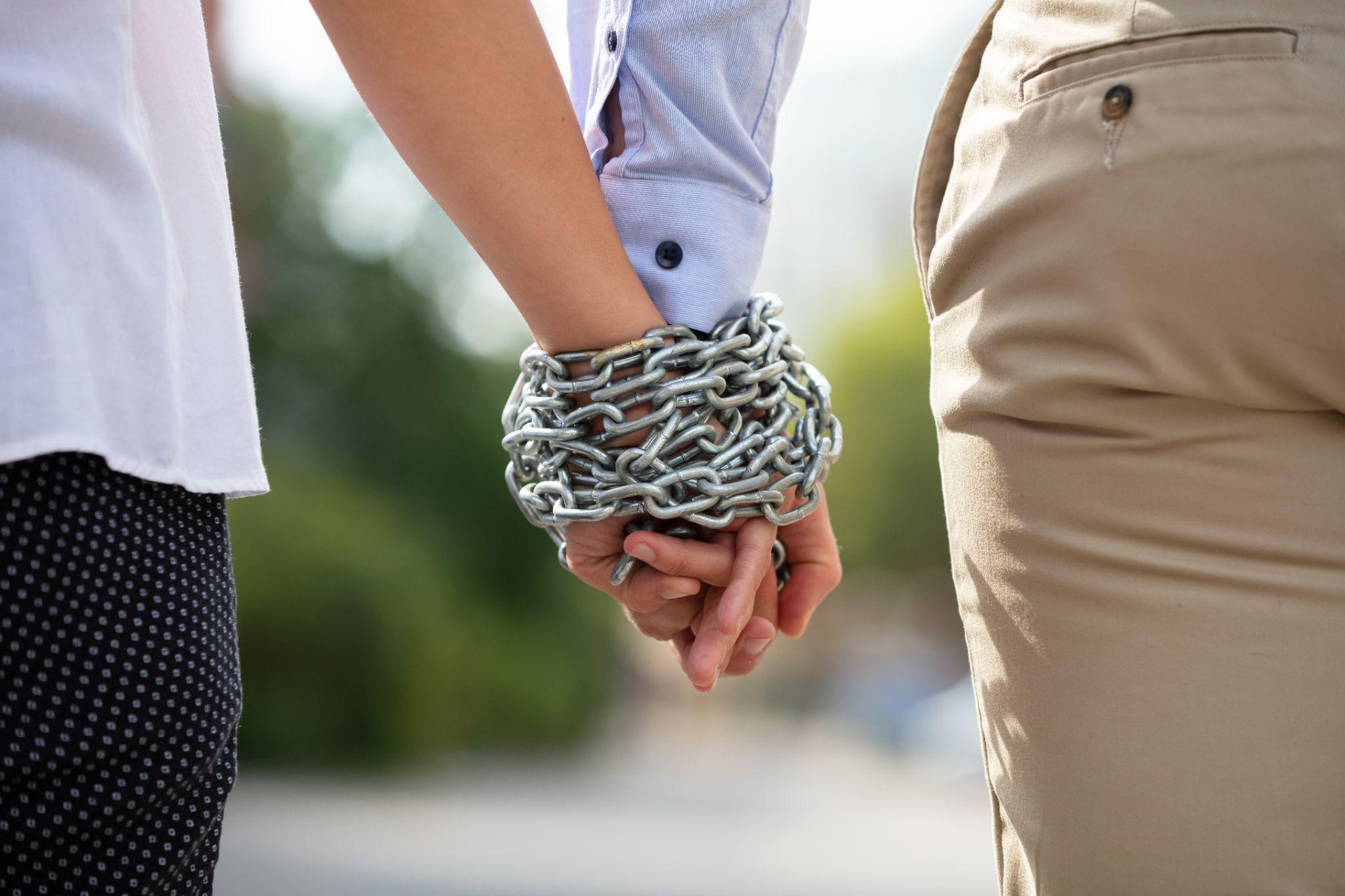Codependent relationships involve excessive emotional reliance between partners, which can hinder personal and mutual growth. Below, we’ll explore the signs, impacts, and management strategies of codependency to help foster healthier relationships on the journey to recovery.
What Is a Codependent Relationship?
A codependent relationship, often simply called codependency, is a relationship pattern in which one partner depends heavily on the other for validation and a sense of self. This relationship pattern can occur in any type of relationship, including those involving family members, friends, or romantic partners.
Often emerging from a genuine desire to care for a loved one, codependency may develop into a situation where one person’s needs overshadow or are deeply entwined with the needs of another. This can sometimes prevent both individuals from recognizing and addressing their own needs and personal growth.
In the context of addiction, codependency can be particularly complex. The non-addicted partner may find themselves constantly sacrificing their own well-being to manage the crises related to the substance use disorder or to keep the peace. Conversely, the partner with an addiction to drugs or alcohol may rely on their significant other not just for emotional support but also as a buffer against the consequences of their destructive behavior.
Understanding this dynamic is critical in addiction recovery, as it helps both partners identify healthier ways of supporting each other while maintaining their own mental health and individuality.
Signs of a Codependent Relationship
Some common indicators of codependency include:
- Excessive Caretaking: A codependent person often puts the other person’s needs before their own, sometimes to the detriment of their own health and well-being.
- Low Self-Esteem: Individuals in codependent relationships may struggle with self-esteem issues, often feeling they are not enough unless they are needed by their partner.
- People-Pleasing Behaviors: There can be a persistent fear of rejection or a compulsion to keep everyone happy, which might lead to consistently ignoring one’s own desires or feelings.
- Difficulty Setting Boundaries: Codependents may find it extremely hard to say no, even when saying yes causes personal hardship or resentment.
- Chronic Fear of Abandonment: There might be an overwhelming fear of being left alone, which keeps a person trapped in an unhealthy relationship dynamic.
- Need for Control: In some cases, controlling behaviors can surface as an attempt to manage the chaos in their environment, particularly in relationships involving substance abuse or addiction.
- Dependency on the Relationship for Personal Satisfaction: A deep reliance on the relationship for all personal satisfaction indicates codependency, especially when the person feels hopeless or depressed when alone or not in contact with their partner.
The Impact of Codependency on Recovery
Codependency can significantly impact the recovery process from addiction, often complicating the path to sobriety and mental health for both partners involved. Understanding these impacts can help codependent individuals better navigate recovery efforts.
Emotional Instability
Codependent relationships can lead to heightened emotional instability. As the emotional well-being of a codependent person is closely tied to the actions and feelings of their partner, recovery milestones—which can include emotional ups and downs—may cause intense stress and anxiety.
This volatility can make it difficult for the addicted person to focus on their recovery, as they might feel pressured to manage their progress in a way that prevents their partner from feeling distressed.
Enabling Behaviors
One of the hallmark traits of codependency is the desire to take care of others at the expense of one’s own needs. In the context of addiction, this often translates into enabling behaviors, where the codependent partner may unintentionally perpetuate the addiction by shielding the addicted individual from the consequences of their actions.
This might include making excuses for their behavior, taking on extra responsibilities, or even providing substances. Such behaviors can delay treatment and recovery by reducing the urgency to change.
Relapse Risks
Codependency can increase the risk of relapse for the recovering person. The stress of trying to maintain a relationship dynamic that centers on caregiving and dependency can lead both individuals to resort to old patterns.
Additionally, if the codependent partner struggles to adjust to healthier boundaries, it might trigger feelings of guilt or abandonment in the recovering individual, which can further complicate the recovery process.
Hindered Personal Growth
Recovery from addiction often requires significant personal development and self-discovery. A codependent relationship might hinder this growth by maintaining a dynamic that discourages independence and self-reflection.
Both partners may find it challenging to establish their own identities and pursue individual interests if they are heavily invested in maintaining their usual relational roles.
Strategies for Managing Codependency in Recovery
Breaking the cycle of codependency is crucial for both partners to achieve health and sobriety. Here are some strategies that can help manage codependent tendencies during recovery:
1: Establish healthy boundaries.
Learning to set and maintain healthy is key to dismantling codependent behaviors. Boundaries help define where one person ends and the other begins, clarifying their needs, rights, and responsibilities.
For the recovering person, boundaries might include rules around substance use, personal space, and recovery activities. For the codependent partner, boundaries might involve limiting caregiving behaviors and focusing more on personal needs.
2: Engage in individual therapy.
Therapy can provide both partners with the tools needed to understand and change their behavior patterns.
For the codependent partner, therapy may focus on building self-esteem, reducing people-pleasing behaviors, and learning to value one’s own well-being. For the recovering person, therapy might address issues underlying addiction, improve coping strategies for stress, and reinforce recovery commitments.
3: Participate in support groups.
Support groups such as Al-Anon or Codependents Anonymous can offer both partners a community of individuals who understand their struggles. These groups provide a platform for sharing experiences and strategies, reducing feelings of isolation and providing models of healthy interpersonal dynamics.
4: Develop independent interests.
Both partners should be encouraged to pursue interests outside the relationship. This helps to reduce dependency by building a sense of self-efficacy and identity that is not tied to the other person. Activities might include hobbies, education, or social groups that support personal growth and independence.
5: Practice open communication.
Effective communication is essential in changing codependent behaviors. Discussing feelings, needs, and concerns openly and respectfully can help both partners understand each other’s boundaries and expectations. It also helps in addressing issues as they arise, rather than allowing resentments to build up.
Embrace Hope and Healing With Lumina Recovery
Recovery from codependency and drug abuse is a deeply personal yet universally challenging journey. It requires confronting painful truths, dismantling unhealthy patterns, and building anew on a foundation of self-awareness and mutual respect.
Lumina Recovery is here as a source of support with therapy services including family therapy and individual therapy on your path away from codependency and addiction. Take that first step towards healing and freedom.
Reach out for help today, and embark on your journey towards a life defined not by addiction and codependency, but by hope, health, and happiness.



